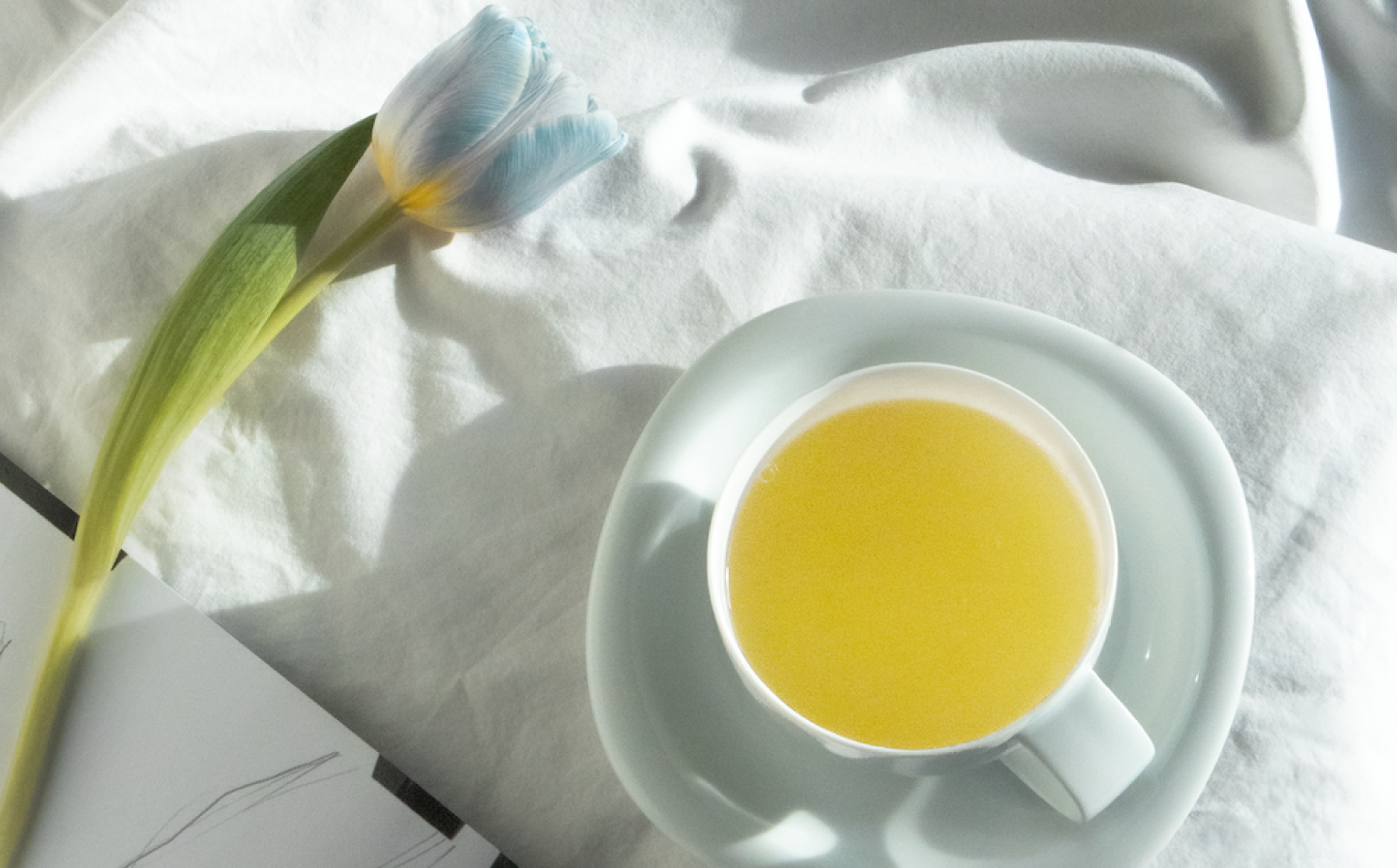Teas to Unwind + Sleep
DRIFT OFF WITH DREAMY BLENDS
Unwind + Sleep Tea Guide
CALM YOUR SENSES WITH SOOTHING BLENDS AND DRIFT INTO A DEEP SLUMBER:
STRESS-FREE SOLACE
Naturally release stress and anxiety with the calming properties of valerian root and lemon balm. For an added dose of tranquility, ease your mind & spirit with notes of passionflower.
DRIFT INTO DREAMLAND
When all you want to do is lie down, this calming herbal features botanicals such as catnip, skullcap, wood betony, and passionflower that will do everything short of sing you to sleep. Enter into a reverie of a starry night with this naturally caffeine-free herbal.
STRESS-FREE SOLACE
Naturally release stress and anxiety with the calming properties of valerian root and lemon balm. For an added dose of tranquility, ease your mind & spirit with notes of passionflower.
DRIFT INTO DREAMLAND
When all you want to do is lie down, this calming herbal features botanicals such as catnip, skullcap, wood betony, and passionflower that will do everything short of sing you to sleep. Enter into a reverie of a starry night with this naturally caffeine-free herbal.
RESTORE BALANCE
In concert with the herbal philosophy, this blend is well-suited as a digestive aid for detoxification purposes. The pure peppermint provides a fresh, minty, tingling sensation, to soothe before a good night's sleep. It also makes an excellent, bracing, and healthy iced tea!
TENSION-RELIEVER
Sip on this soothing botanical blend to calm and cool the most stressed of minds. A tension reliever, this wellness powder soothes the muscles, preparing the body for a restful downtime. Blended for optimal health and wellness with anti-inflammatory turmeric and ginger.
RESTORE BALANCE
In concert with the herbal philosophy, this blend is well-suited as a digestive aid for detoxification purposes. The pure peppermint provides a fresh, minty, tingling sensation, to soothe before a good night's sleep. It also makes an excellent, bracing, and healthy iced tea!
TENSION-RELIEVER
Sip on this soothing botanical blend to calm and cool the most stressed of minds. A tension reliever, this wellness powder soothes the muscles, preparing the body for a restful downtime. Blended for optimal health and wellness with anti-inflammatory turmeric and ginger.
Ingredient Highlights
- PASSIONFLOWER
- VALERIAN ROOT
- PEPPERMINT
- TURMERIC
PASSIONFLOWER
Passionflower is a climbing vine that is native to the southeastern United States, and Central and South America. Passionflower is known to reduce anxiety with its anxiety-calming (anxiolytic) effects¹.
VALERIAN ROOT
As one of nature’s most popular anxiolytics, valerian root has been used since ancient times to promote tranquility. This herb is known to naturally soothe nerves, relieve anxiety and tension, and promote restfulness, while boosting the immune system¹.
PEPPERMINT
Peppermint has been shown to relax muscles in your digestive system, reduce tension headaches and migraines¹, and also reduce intensity and length of menstrual cramps². The menthol in peppermint gives it its cooling and soothing properties, which may help unclog sinuses³.
TURMERIC
Turmeric is sought after for its antibacterial and anti-inflammatory properties, and can help relieve tension and soothe muscles, preparing you for a restful and restorative sleep¹.
Unwind + Sleep FAQs
HOW DOES CAFFEINE AFFECT YOUR SLEEP?
As a stimulant which affects your levels of alertness and body function, caffeine can have a disruptive effect on your sleep if ingested shortly before slumber. Difficulty falling asleep can lead to disruption of your internal clock, and affect your natural sleep patterns.
To prevent this cycle, you should avoid ingesting high levels of caffeine in the evening, such as coffee and black teas, and instead opt for low caffeine or naturally caffeine-free options.
In addition, if you are caffeine sensitive, drinking green tea before bed can affect your sleep, as it still includes low levels of caffeine. To avoid caffeine completely, herbal blends are a more suitable alternative, as they are naturally caffeine-free. Discover how much caffeine is found in a variety of beverages in our general FAQs.
WHAT ARE THE BENEFITS OF HAVING A CUP OF TEA BEFORE BED?
Most notably, the consumption of tea has been linked to positive effects on metabolism and digestion while sleeping by soothing your body and muscles, in addition to providing hydration. All these effects not only aid in a restful sleep but in your overall health and well-being.








